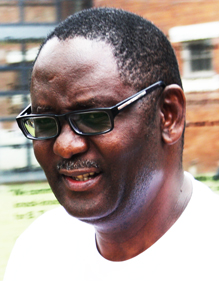
This is one of the key points that came out of the International Anti-Corruption Day roundtable discussion at the Unisa in Pretoria on Monday 10 December 2012.
Cosatu general secretary and Corruption Watch board member Zwelinzima Vavi, Public Service Commission (PSC) chairperson Ben Mthembu, deputy minister of public service and administration Ayanda Dlodlo and Unisa vice chancellor Mandla Makhanya all agreed that the time for diagnosing the symptoms of corruption and their effects was over. What is needed now is measures put in place to prevent it from getting worse.
“If corruption is not defeated,” said Vavi, “it will mean the decay and ultimate death of the living body of our democracy.”
Vavi’s address was the first in his capacity as the chairperson of the National Anti-Corruption Forum, and he committed to doing his best to bring corruption in the public service to an end.
Conflict of interest
The biggest threat to South Africa’s democracy, according to Vavi, is the conflict of interest entered into by government leaders.
“We live in a country with clever people who manipulate the system all the time for their own benefit,” he said. “That is why lifestyle audits are necessary for all public officials, from senior leaders to junior staff members, so that we don’t have to ask ourselves ‘how can this person afford such?’ in the case of people living above their income.”
Furthermore, in reaction to acts of corruption, public officials should be charged with misconduct when they fail to declare their conflict of interest, he added.
“Senior officials should let their conscience dictate to them, and resign while investigations of misconduct are being done against them, instead of staying in their positions until proven guilty.”
Player or referee?
Mthembu reiterated the PSC’s recommendation to parliament to scrap legislation that allows public officials to hold positions in companies contracted to the government – with the only requirement being that they disclose these private interests.
Vavi agreed with the call, citing the auditor general’s report for 2011/12, which only gave 5% of municipalities in the country clean audits.
“The auditor general also found that over R11-billion in unauthorised, irregular, fruitless expenditure was incurred by municipalities across the country, almost double the amount in the previous year’s report.
“Municipal officials, councillors and in some cases their relatives, pocketed R814-million from illegal municipal deals without being brought to book.
“Those who are responsible are getting away with it. No one is being held to account, and there are no consequences. Our movement must take it from there.”
Quoting a PSC report, Vavi said the cost of financial misconduct within the public service for the year 2010/11 was a shocking R932-million, up from R346-million in 2009/10.
This exposes the demon of conflict of interest, and shows why we should fully support the PSC’s call to have public servants banned from doing business with government, said Vavi.
“You cannot be player and referee at the same time and expect things to go right,” said Vavi.
“Officials must choose between serving the public and going into the private sector and doing business, as is the right of every South African.”
He also said South Africa had arrived at a point where people were not discouraged to take part in corrupt practices, but instead were making sure that they were not caught.
Common strategy needed
Peter Goss, the director of forensic services at auditing firm PriceWaterhouseCoopers, called for a collective strategy by business, government and civil society in the fight against corruption.
“The reason we miss that is that we don’t have collective leadership against corruption in our country,” he said. “It’s all good and well that we are able to highlight symptoms of corruption and how it affects the country, but what has always been lacking is a common strategy in its combat.”
Four key points need close inspection: implementation of a collective strategy, execution, supervision and accountability.
“We have to go back to the drawing board, otherwise we are going nowhere.”
To this, the UN Office against Drugs and Crime representative for South Africa, Mandiaye Niang, cited the different tools that need to start speaking to each other, including the offices of the auditor general, the public protector and the National Anti-Corruption Forum. This would be helpful in implementing that common strategy, Niang added.
“Tackling corruption from a criminal policy point of view must be encouraged, because South Africa is equipped in this regard to deal with it,” he said.
“Despite the outcry from government, civil society and religious groups, among others, the biggest problem is that none of us are turning principles into action on the ground,” said Vavi, “and as a result ordinary South Africans do not believe in us as their leaders.”
A successful anti-corruption strategy, said Corruption Watch executive director David Lewis, has to be led at the highest level of public service and civil society, and owned by leadership. This way members of the public can hold them to account if they do not toe the line.
“The way to ensure a strong, ethical leadership,” he said, “is to have a strong and demanding citizenry.”

